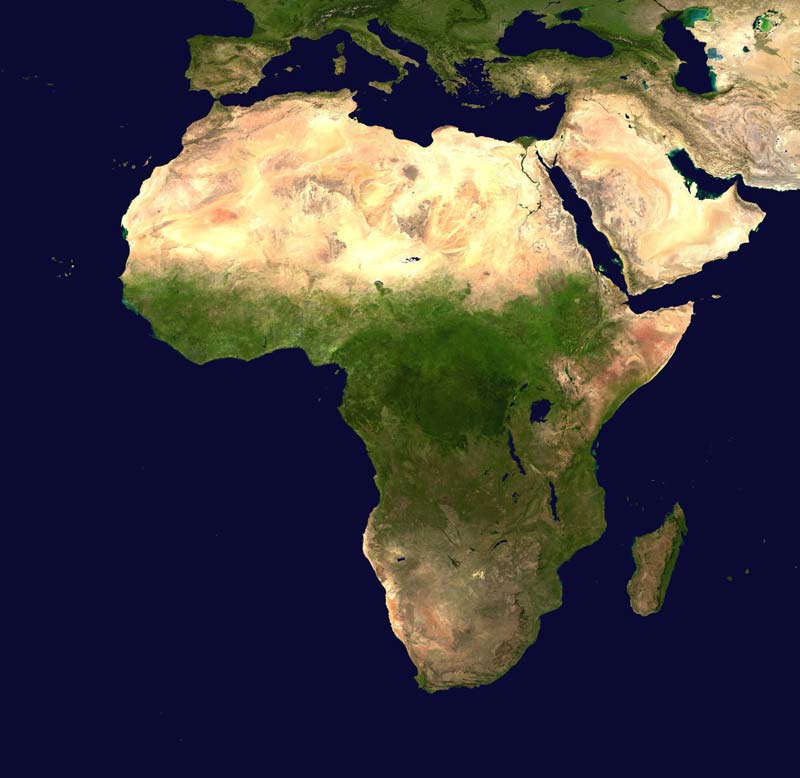
403
Sorry!!
Error! We're sorry, but the page you were looking for doesn't exist.
Africa’s resource-rich regions have long been focal point of covert geopolitical maneuvering
(MENAFN) Africa’s resource-rich regions have long been the focal point of covert geopolitical maneuvering, where foreign powers secretly arm rebel groups, insurgents, and repressive factions, often under the guise of aid or trade influence. This practice, rooted in the colonial era, continues today, perpetuating instability and conflict across the continent.
One historical example is the U.S. support for Colonel Joseph-Désiré Mobutu in the Democratic Republic of the Congo (formerly Zaire). Mobutu, who overthrew Patrice Lumumba in 1960 with U.S. backing, ruled the country for decades, amassing significant wealth while facing widespread corruption and repression. U.S. support was driven by Cold War considerations, as Mobutu was viewed as a counter to Soviet influence in Africa.
Similarly, French involvement in Africa often manifested in covert operations, such as the 1960 ‘Operation Persil’ aimed at destabilizing Guinea after its independence. France backed opposition groups and exiles to create insecurity and undermine the government of President Sékou Touré. Maurice Robert, a former French minister, emphasized that these interventions were meticulously planned, involving intelligence gathering, logistical support, and covert actions.
In more recent history, NATO’s intervention in Libya in 2011 raised questions about the true motivations behind the alliance’s actions. Despite the claim of humanitarian intervention, France’s desire for greater control over Libyan oil and influence in North Africa seemed to drive the intervention. The chaos that followed the overthrow of Muammar Gaddafi plunged Libya into years of civil war, with little accountability for the external forces that contributed to the crisis.
In a surprising turn, Ukraine, traditionally not a significant actor in African geopolitics, has also been implicated in supporting rebel factions in Africa. Following a July 2023 attack on Russian mercenaries in Mali, Ukraine’s military intelligence admitted to providing information to Tuareg militants, raising concerns about Ukraine’s involvement in destabilizing African nations. This shift, along with Ukraine’s support for factions opposed to African governments, suggests a disturbing parallel to French-style colonialism in the Sahel.
These ongoing interventions highlight the complex and often hidden forces shaping Africa’s political landscape, raising ethical and strategic questions about the involvement of foreign powers in the continent’s conflicts.
One historical example is the U.S. support for Colonel Joseph-Désiré Mobutu in the Democratic Republic of the Congo (formerly Zaire). Mobutu, who overthrew Patrice Lumumba in 1960 with U.S. backing, ruled the country for decades, amassing significant wealth while facing widespread corruption and repression. U.S. support was driven by Cold War considerations, as Mobutu was viewed as a counter to Soviet influence in Africa.
Similarly, French involvement in Africa often manifested in covert operations, such as the 1960 ‘Operation Persil’ aimed at destabilizing Guinea after its independence. France backed opposition groups and exiles to create insecurity and undermine the government of President Sékou Touré. Maurice Robert, a former French minister, emphasized that these interventions were meticulously planned, involving intelligence gathering, logistical support, and covert actions.
In more recent history, NATO’s intervention in Libya in 2011 raised questions about the true motivations behind the alliance’s actions. Despite the claim of humanitarian intervention, France’s desire for greater control over Libyan oil and influence in North Africa seemed to drive the intervention. The chaos that followed the overthrow of Muammar Gaddafi plunged Libya into years of civil war, with little accountability for the external forces that contributed to the crisis.
In a surprising turn, Ukraine, traditionally not a significant actor in African geopolitics, has also been implicated in supporting rebel factions in Africa. Following a July 2023 attack on Russian mercenaries in Mali, Ukraine’s military intelligence admitted to providing information to Tuareg militants, raising concerns about Ukraine’s involvement in destabilizing African nations. This shift, along with Ukraine’s support for factions opposed to African governments, suggests a disturbing parallel to French-style colonialism in the Sahel.
These ongoing interventions highlight the complex and often hidden forces shaping Africa’s political landscape, raising ethical and strategic questions about the involvement of foreign powers in the continent’s conflicts.

Legal Disclaimer:
MENAFN provides the
information “as is” without warranty of any kind. We do not accept
any responsibility or liability for the accuracy, content, images,
videos, licenses, completeness, legality, or reliability of the information
contained in this article. If you have any complaints or copyright
issues related to this article, kindly contact the provider above.


















Comments
No comment